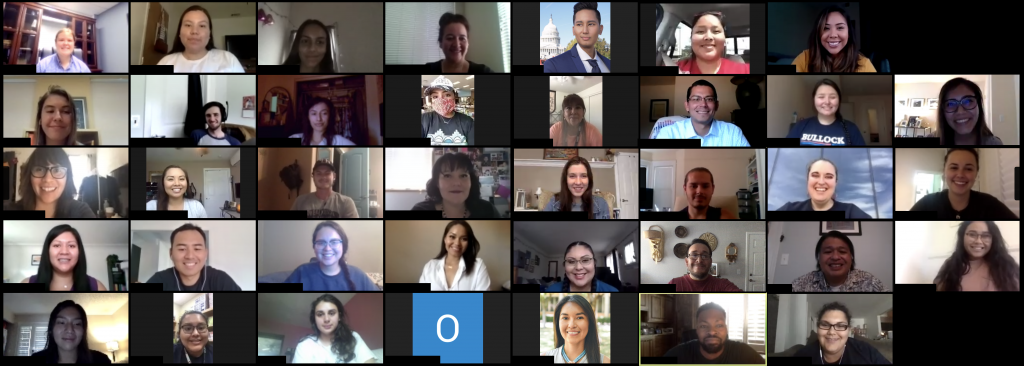 Kate Rosier (Comanche)
Kate Rosier (Comanche)
Executive Director, Indian Legal Program
Assistant Dean of Institutional Progress
She completed her undergrad at Capital University with a concentration in Business Management. Kate is responsible for recruitment, student retention, fundraising, alumni development, jobs, grant writing, CLEs and programs.
Fun facts about me: 1) I am an Ironman! In 2010 in honor of my 40th birthday I swam 2.4 miles, biked 112 miles, and ran 26.22 miles. 2) I was voted Homecoming Queen in high school. 3) My husband, sister-in-law, and brother-in-law all are ASU Law grads and participated in ILP. I am the only one who didn’t. (sad face)
 Patty Ferguson-Bohnee (Pointe-au-Chien Indian Tribe)
Patty Ferguson-Bohnee (Pointe-au-Chien Indian Tribe)
Faculty Director, Indian Legal Program
Director, Indian Legal Clinic.
She completed her undergrad at Stanford University with a concentration in Native American Studies with an Emphasis in Policy and Law. Patty directs and teaches the Indian Legal Clinic and advanced research seminars on Native Vote – Election Protection and Climate Impacts affecting Tribal Cultural Heritage.
Fun facts about me: 1) I spent time in France as an undergrad, law student, and spent an academic year doing research. I love France! 2) I help to organize a culture camp for Pointe-au-Chien youth every summer.
 Robert J. Miller (Eastern Shawnee Tribe of Oklahoma)
Robert J. Miller (Eastern Shawnee Tribe of Oklahoma)
Professor of Law
He attended Eastern Oregon University and received his B.S. in 1988. Professor Miller teaches Federal Indian Law I and II, and Economic Development in Indian Country.
Fun facts about me: 1) I was born and raised in Portland Oregon which is a LOT cooler than Phoenix. 2) I worked in my dad’s used car business for 19 years before I went to college [I know how to repossess cars, so I must be really tough!] 3) I played soccer for 30 years and we won the Portland city championship three times!
 Trevor Reed (Hopi)
Trevor Reed (Hopi)
Associate Professor of Law
He completed his undergrad at Brigham Young University with a concentration in Music composition. Professor Reed teaches Federal Indian Law II, Property, and Intellectual Property
Fun facts about me: 1) I love hiking and mountain climbing and once summited Mt. Rainier. 2) I’m a bass player and music nerd who loves everything from classic rock to symphony. 3) My favorite foods right now are Noqwivi (Hopi stew) and Harumi Sushi.
 Larry Roberts (Oneida Nation (WI))
Larry Roberts (Oneida Nation (WI))
Professor of Practice and Executive Director of the Indian Gaming and Tribal Self-Governance Programs
Professor Roberts teaches Indian Gaming Law and Administrative Law. He completed his undergrad at the University of Wisconsin – Madison concentrating in Political Science and Sociology.
Fun facts about me: 1) I’ve run 8 marathons, including NYC, DC and Chicago. 2) I briefed President Obama in the Roosevelt Room. 3) the first concert I ever saw was the Police during their Synchronicity tour – the ticket was $17.50.
 Ann Marie Bledsoe Downes (Winnebago Tribe of Nebraska)
Ann Marie Bledsoe Downes (Winnebago Tribe of Nebraska)
Professor of Practice and Director, Indian Gaming and Tribal Self-Governance Programs
She attended Wayne State College with a concentration in Social Sciences Education. Professor Bledsoe Downes works on development of curriculum for the Indian Gaming and Tribal Self-Governance programs, oversight and administration of the programs, as well as recruitment and retention of students in the MLS and LL.M. Degrees.
Fun facts about me: 1) I love to run and do yoga. 2) I always use pencils instead of pens. 3) My husband Brad and I were the first ILP marriage.
 Helen Burtis
Helen Burtis
Faculty Associate
Professor Burtis completed her undergrad at Kansas State University with dual majors in Business Management and General Humanities. She teaches Advanced Legal Writing in Indian Law and the online master’s American Indian Law. Professor Burtis also helps with the Indian Legal Clinic, including the Indian Wills Clinics, the Tribal Court Trial Skills College, and supervising students working on business formation cases.
Fun facts about me: 1) I am a grateful grandmother of two really fun grandsons. 2) I am an avid hiker and hill climber, venturing out several times each week. 3) After a lifetime of eating meat, I became a vegan in early 2020.
 Tamara Herrera
Tamara Herrera
Associate Dean of Academic Affairs
Professor Herrera completed her undergrad at Grinnell College with a concentration in English. She co-teaches the Indian Legal Research course with Beth DiFelice.
Fun facts about me: 1) I was the first person in my family to go to college (and, obviously, law school). 2) I love amusement parks and rollercoasters. 3) I worked on a soap opera after college as an apprentice production assistant.
 Beth DiFelice
Beth DiFelice
Assistant Dean and Director, Ross-Blakley Law Library
Professor DiFelice completed her B.A. in English at Centenary College of Louisiana. She co-teaches the Indian Legal Research course with Tamara Herrera. She oversees the law library and has created the Indian Legal Research Guide, which is very useful.
Fun facts about me: 1) I have a cat who we call Puppy. 2) My hobby is Olympic Weightlifting. 3) I am a former yoga teacher.
 Danielle Williams (Navajo)
Danielle Williams (Navajo)
Program Coordinator
She completed her undergrad at Arizona State University with concentration in Photography and minors in Justice Studies and Anthropology. She plans and coordinates events, processes business claims, manages ILP social media and monthly newsletter, and all things marketing.
Fun facts about me: 1) I love dancing and led a virtual powwow fitness session. Balancing health and wellness are super important! 2) I’m a photographer and love documenting—Nell’s Photography. 3) I don’t really like chocolate, but I love (and make a great) tiramisu.
 Theresa Beaulieu (Stockbridge-Munsee)
Theresa Beaulieu (Stockbridge-Munsee)
Program Coordinator
She graduated from ASU and UA. She works on ILP events, marketing and processing information for the program.
Fun facts about me: 1) I lived in Arizona off and on since 1963. 2) I’ve visited all 50 of the United States. 3) And I have webbed toes. We are playing two truths and a lie, aren’t we?
 Bari Barnes
Bari Barnes
Program Coordinator
She completed her undergrad at Phoenix College with concentration in Fashion Merchandising and the Paralegal Certificate Program. Bari works closely with Professor Ferguson-Bohnee in the ILC providing support and assisting Clinic students.
Fun facts about me: 1) I’ve tandem skydive. 2) I once participated in an Inipi ceremony 3) I am a huge fan of the Jason Bourne series.
 Torey Dolan (Choctaw Nation of Oklahoma), JD ’19
Torey Dolan (Choctaw Nation of Oklahoma), JD ’19
Native Vote Fellow
She completed her undergrad at the University of California, Davis in 2016 with concentration in History and Political Science – Public Service. Torey also works closely with Professor Ferguson-Bohnee in the ILC and handles all things Native American Election Protection Vote.
Fun facts about me: 1) I graduated from ASU and ILP in 2019. 2) My favorite hike in metro-Phoenix is the Javelina Trail at South Mountain. 3) I grew up in Bakersfield, California.
 Ben Zinke, JD ’18
Ben Zinke, JD ’18
Law Fellow
He graduated from Grand Canyon University with concentration in Justice Studies. Ben assists the ILP and faculty with research projects and providing content for reports.
Fun facts about me: 1) I love Basketball 2) I love Star Wars 3) I have four dogs
 Ah’sha Notah (Navajo)
Ah’sha Notah (Navajo)
Office Aide
She is currently working on her undergraduate degree with the ASU’s College of Liberal Arts and Sciences concentration in American Indian Studies. Ah’sha processes business claims, tracks expenses and assists with events.
Fun facts about me: 1) I make jewelry. 2) I dance (powwow) in my free time. 3) I usually travel to Canada during the summers.
____
Danielle Williams
Program Coordinator, Indian Legal Program, ASU Law

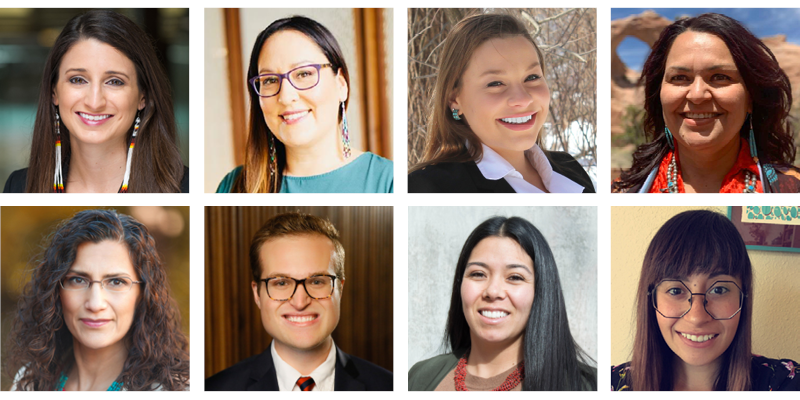
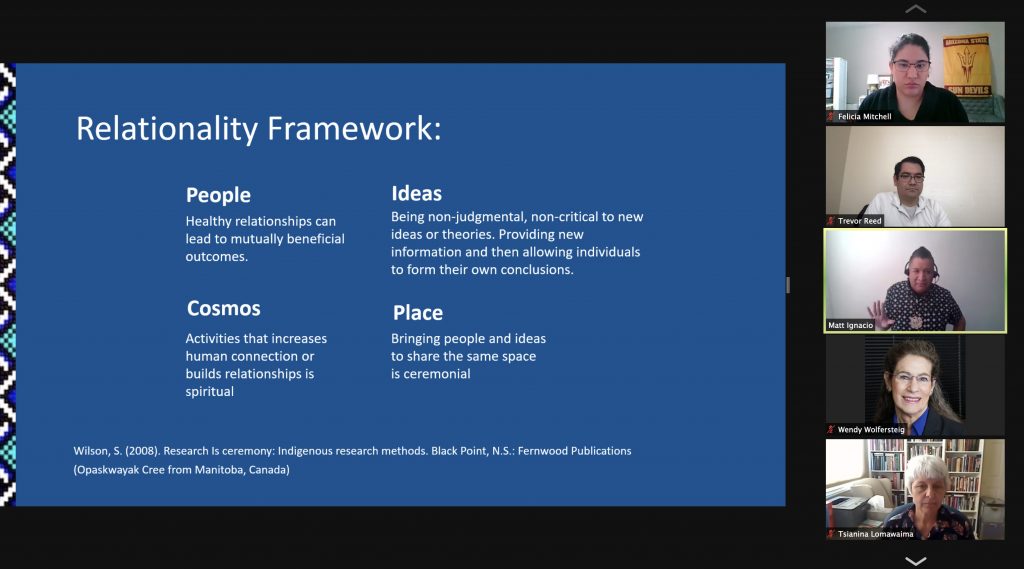
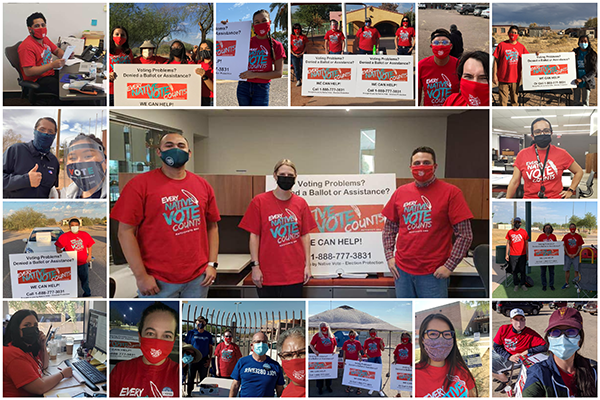
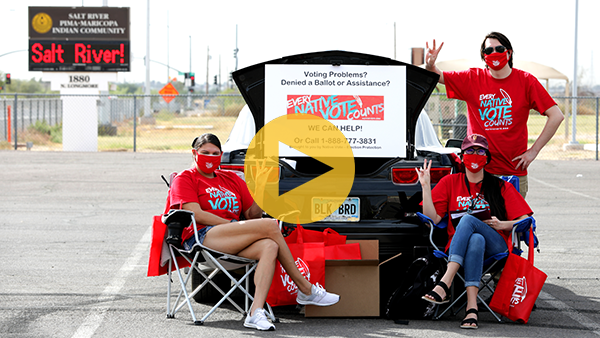
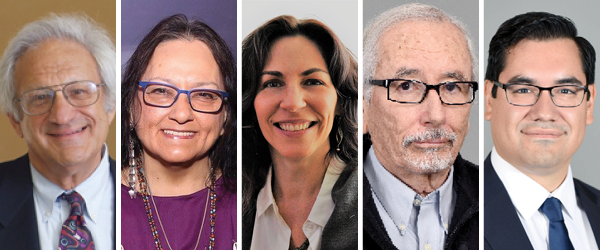










 There
There



